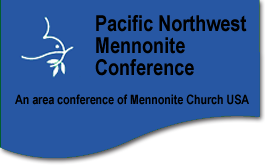Representatives from Zion Mennonite Travel to Burkina Faso
It all started in the 1970’s, when missionaries of the Christian Missionary Alliance in what was then the country of Upper Volta asked their friends in the Mennonite Central Committee, also working in Upper Volta (the name was changed to Burkina Faso in 1984), if they could send missionary linguists to the southwestern province of Kenedougou, by the border with Mali and Ivory Coast. They saw the area as opening to the gospel, but they didn’t see any new missionary linguists of their own “coming down the pike.” MCC workers contacted Africa Inter-Mennonite Mission, and soon, two young Mennonite missionary families came from North America and settled in the provincial capital, Orodara. There they met a few Christians, some whom had moved in from parts east. Together, they formed the nucleus of what is now the Eglise Evangélique Mennonite du Burkina Faso (the Evangelical Mennonite Church of Burkina Faso).
One of those new Christians was Siaka (Arabic for Isaac) Traore, the first Christian of his Toussian tribe and family. Recognizing his remarkable character and leadership capacity, AIMM sent him and his wife, Claire, to the French language seminary in Bangui, Central African Republic. Siaka’s Master’s Thesis was on how the new Mennonite Church of Burkina Faso could become self-supporting, self-leading (with locally-grown pastors and leaders) and self-replicating (sending out Burkinabe missionaries and church planters to other countries, tribes, and communities) as quickly as possible. Since Siaka’s return to Burkina Faso in 1986 (when Becky and I were there), the EEMBF has basically followed his Three-Self plan and has grown from 1 church to at least a dozen now. No longer a “mission church,” they are equal partners, standing head and shoulders with every other denomination in the Mennonite World Conference. Any Mennonite workers coming from France, North America or elsewhere come at their behest, to serve only according to needs they identify and cannot fulfill on their own (yet). Other Burkinabe churches and denominations now look to the EEMBF for help in mediation and conflict resolution. Many Muslims and traditionalists trust the integrity of Siaka and other Mennonite leaders in ways that they don’t always trust each other.
Siaka also runs a paper products-and-school supply business in markets around western Burkina Faso, by which he trains young adults for business entrepreneurship and leadership skills. After serving several terms as president of the EEMBF, one as MCC Peace-making Resource Person for French-speaking Africa, and after planting a church in the city of Bobo-Dioulasso, Siaka now serves and travels worldwide with the Deacons Commission of the Mennonite World Conference.
In mid-November, Kelly and Don Yoder and I hope to travel there to join our Burkinabe brothers and sisters (ni Ala sonna—Jula for “if God so wills”) for two weeks to celebrate 40 years of worship, ministry and mission for the EEMBF. Burkina Faso is one of the poorest countries in the world. It has a population of 19 million, is smaller than Colorado, and has an environment, climate and ecology much like West Texas. Still, I am sure we will experience wonderful hospitality, great, savory and spicy food, stirring music and dance (yes, in church), warm, dry weather (like September in Oregon) and inspiration from the testimonies of many first-generation Christians who have often paid much for their faith, and whose churches welcome and include people of tribes with histories of conflict. Sometimes we will hear songs, messages and prayers in three, maybe even four, languages in the same service, in the same sanctuary. We hope to bring news, greetings, blessings, testimonies and children’s artwork from Zion MC, and to return with the same from them for us. We will also witness and report back about the fruits of your stewardship and generosity, visible in such things as a livestock enclosure that helps fund Bible translation, a motorcycle for a church planter, and the spiritual vibrancy of those who attended young women’s seminars.
Please pray for us, for this trip, for our health and all travel details, that we might be a blessing to our hosts, and that we might bring blessings back from them. Blessings are a regular and important feature of life there for Christians, Muslims and traditionalists. The following blessings are given to anyone about to leave: “Ala ka tama diya” (May God make your travel pleasant), “Ala ka I nyuman se” (May God give you a good return), and “Ka u soro hey-rey la” (“May you find them in peace”). To each we reply, “Amina!” Please pray for those blessings on our behalf.

No Response to “Representatives from Zion Mennonite Travel to Burkina Faso”